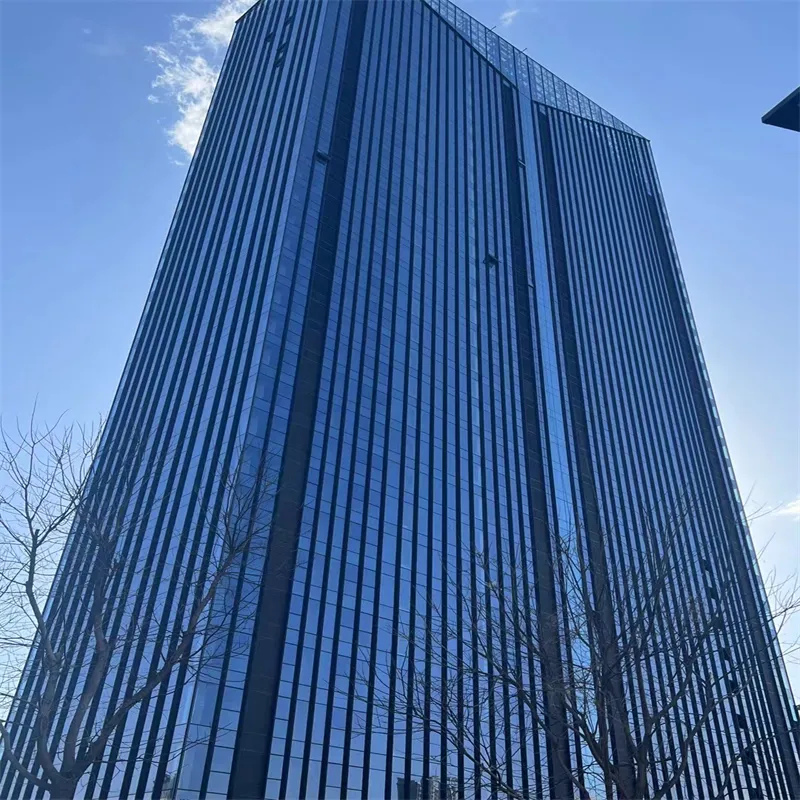Nov . 27, 2024 13:48 Back to list
Understanding the Benefits and Applications of Tempered Glass in Modern Architecture
Tempered Glass A Comprehensive Overview
Tempered glass, also known as toughened glass, is a type of safety glass that is significantly stronger than ordinary glass. It undergoes a thermal or chemical treatment process, which enhances its strength and thermal resistance. This innovative material has numerous applications, from architectural design to automotive manufacturing, making it a crucial component in modern construction and technology.
The manufacture of tempered glass involves a unique process that distinguishes it from regular glass. The production begins with standard float glass, which is then heated to temperatures of around 620 degrees Celsius (1,148 degrees Fahrenheit) and subsequently cooled rapidly through a process called quenching. This thermal treatment not only increases the glass’s strength but also establishes a state of compressive stress on the surface while creating tensile stress within. This imbalance of stress is what allows tempered glass to withstand greater impacts and thermal fluctuations without breaking.
One of the most significant advantages of tempered glass is its safety features. In the event of shattering, tempered glass breaks into small, blunt pieces rather than sharp shards, minimizing the risk of injury. This characteristic makes it an essential material in environments where safety is paramount, including shower doors, glass doors, windows, and facades. Its use in vehicles is also critical; tempered glass can absorb impacts while ensuring passenger safety during accidents.
Thermal resistance is another compelling attribute of tempered glass. It can withstand temperature differences of over 200 degrees Celsius (392 degrees Fahrenheit), making it suitable for applications that involve extreme temperature variations, such as fireplace screens and oven doors. In addition, tempered glass can be used in solar panels and greenhouses, where high temperatures and thermal shock are common challenges.
tempered glass

Aesthetic appeal is another reason why tempered glass has become a favorite in architectural design. It is available in various thicknesses, colors, and finishes, providing architects and designers with flexibility in creating visually stunning structures. From sleek glass facades to luminous skylights, tempered glass offers a seamless blend of functionality and beauty. Its transparency allows for natural light infiltration, reducing the need for artificial lighting during the day, which is a considerable advantage in energy-efficient building designs.
Tempered glass is also environmentally friendly. As it is entirely recyclable, it contributes to sustainable building practices. Additionally, its energy efficiency can lead to reduced reliance on heating and cooling systems, lowering overall energy consumption in buildings.
However, while tempered glass possesses many strengths, it is not without its limitations. For instance, it cannot be cut or drilled after the tempering process; any alterations must be made prior to tempering. Additionally, while it is stronger than traditional glass, it can still break under extreme conditions, and repair or replacement can be costly. Therefore, careful consideration is necessary when determining its application based on specific project requirements.
In conclusion, tempered glass is a remarkable material that combines strength, safety, and aesthetic flexibility, making it an essential component in various industries. Its impressive attributes, including enhanced safety features, thermal resistance, and eco-friendliness, make it a preferred choice for architects, builders, and manufacturers alike. As technology continues to evolve, it is likely that new applications and innovations surrounding tempered glass will emerge, further solidifying its place in the modern landscape. Whether you are redesigning a home, constructing a new office building, or manufacturing cutting-edge technology, tempered glass undeniably offers unmatched benefits that cannot be overlooked.
-
Safety and Style with Premium Laminated Glass Solutions
NewsJun.24,2025
-
Reinvents Security with Premium Wired Glass
NewsJun.24,2025
-
Premium Float Glass Line for Modern Architecture
NewsJun.24,2025
-
Low Emissivity Glass for Energy-Efficient Architecture
NewsJun.24,2025
-
High-Performance Insulated Glass Solutions for Modern Architecture
NewsJun.24,2025
-
Elevates Interior Style with Premium Silver Mirror
NewsJun.24,2025
Related PRODUCTS














